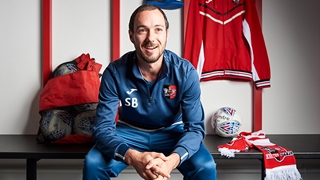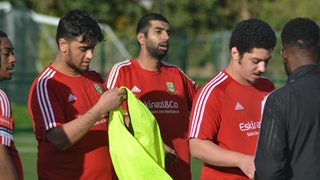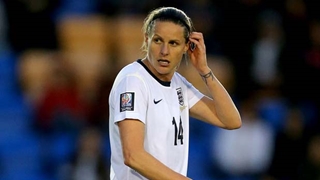
It’s so important to keep raising issues about mental health, not just today, but throughout the year.
And that’s why I’ve been involved in telling my story, which has seen football take me on an amazing journey in turning my life around through coaching.
My story begins when I lost my mum to suicide in 2011. I lost my way and became involved in drug abuse as my life spiralled from there into depression and anxiety, which were the main areas of mental health conditions that I developed.
I lost my job and I was between homes after that, as well as being homeless three times.
The third time that I was homeless, I decided to do something about it and that’s when I was able to get into the Amber Foundation in Exeter, which was a very big step in being able to get back on track.
I was part of a group who regularly attended Exeter City’s Opportunity Cub football session, which meant I could meet new people with their own mental health issues through our mutual love for football.
And as much as I enjoyed playing football, I was interesting in coaching it and it was then that I met with the disability officer at Exeter City FC and a very positive conversation came out of it.
I was to undergo my FA Level 1 coaching course and I asked the session leaders about volunteer opportunities with Exeter City's Football in the Community scheme.
I started by volunteering on the Premier League Kicks programme, which I attended and enjoyed.
I was then invited to an Ability Counts training session for adults with a range of disabilities. It was nerve racking to begin with, as I didn’t know anybody but I was soon taking half of the group and conducting my own coaching sessions.
There were coaching opportunities with the Powerchair team and I became head coach of the Powerchair team, which was a massive achievement for me personally.
This allowed me to engage with the players on a professional and personal level, becoming an approachable, and trusted, member of the coaching team.
I have gone on to coach with the Ability Counts men’s and women’s teams at tournaments, as well as saying a few words and presenting awards at the Ability Counts end of season event at St James Park.
It was a fantastic opportunity to experience adult football coaching for the first time, as it enabled me to better myself as a coach working alongside experienced coaches from Exeter City.
I learned new techniques and drills which I could use with an U9s team I work with. I also do some occasional coaching with the Down’s Syndrome players and I’m a qualified referee so I’ve been able to get my hands on various roles which have expanded my involvement, experience and knowledge in football.
So it’s been quite an amazing journey and a gateway to a career that I never thought I could possibly attain so it was really worthwhile.
I am very lucky with how it worked out for me, and I couldn’t be more grateful to Exeter City for giving me the opportunity that so many newly qualified coaches would dream of.
It’s a pleasure and honour to be involved with Exeter City Football Club and Ability Counts Football Club. I still attend and play when I can because I believe it’s important to remember where you came from.
And I’ve been able to help with a mental health awareness campaign, ‘RealMenTalk’ with Devon County Council as I was a name put forward to them to tell my story.
As a result of that campaign, they had record numbers of referrals since my story came out, which is what it’s all about.
Find out more about World Mental Health Day 2018.
Do you fancy a shot at coaching? Why not sign up to a course and start your own journey in football?









